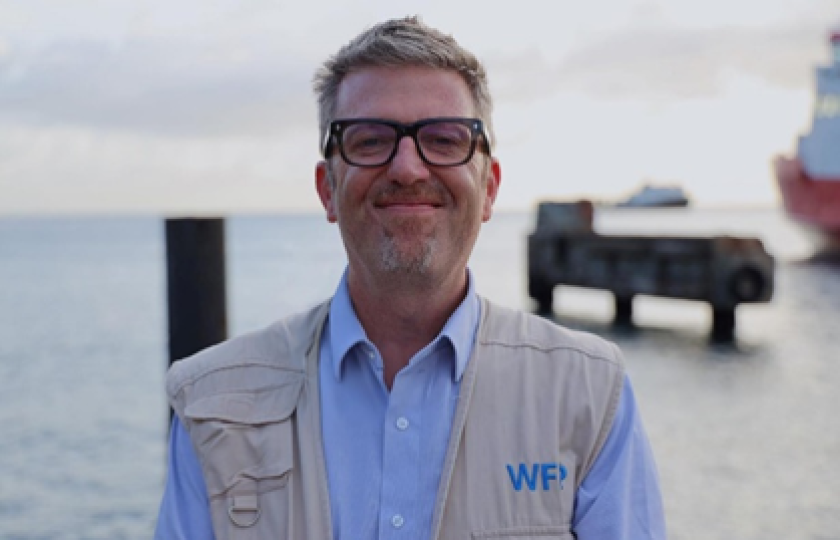Underscoring the importance of collaboration to achieve the Region’s agriculture goals, Dr. Armstrong Alexis, CARICOM Deputy Secretary-General, said the focus of the Caribbean Week of Agriculture (CWA) is a call to action that underscores the urgency of integrating resilience and sustainability into the fabric of our agricultural practices.
CWA 2024 will be held under the theme ‘Climate Smart Agriculture for a Sustainable Future’.
The Deputy Secretary-General said climate smart agriculture is a practice that requires the “collective effort of every stakeholder in the agricultural sector.”
“Women, young people, the private sector, civil society, regional and international partners, and policy makers all play a critical role in our drive towards regional food and nutrition security,” he said at the launch of the CWA.
The CWA 2024 will be a pivotal event for agriculture stakeholders and an opportunity to “forge partnerships, share knowledge and commit to actions that will safeguard our Region’s agriculture production, and at the same time protect our precious natural resources. I am hopeful, that the events staged for CWA 2024 will provide stakeholders with an ideal opportunity to interact with their counterparts from across the Region, showcase their products at the Trade Show and Exhibition, and mutually benefit from shared knowledge and experience”, the Deputy Secretary-General added.
Mr. Joseph Cox, CARICOM Assistant Secretary-General, Economic Integration, Innovation and Development, who provided a historical perspective of the CWA, spoke also of the importance of climate smart agriculture.
“The region recognizes that the adaptation of CSA (climate-smart agriculture) has the potential to revolutionise the agri-food systems in the Region through the integration of innovative technologies, gender-sensitive approaches and scalable solutions to ensure food security, resilience, and the improvement of livelihoods in the face of the changing weather patterns and extreme events. Digital agriculture tools have the potential to revolutionise agri-food systems by improving connectivity and reducing inefficiencies.
“Let us collaborate, innovate and act with the urgency that the theme of Climate Smart Agriculture demands. Together, we can ensure a sustainable future for the region’s agriculture sector,” he said.
The message of collaboration was also delivered by Mr. Errington Thompson, President of the Agriculture Alliance of the Caribbean (AACARI) who represented the stakeholders in the food production and food security industry.
“Let’s get together, let’s communicate, let’s collaborate and combine resources; together we are stronger,” he said. To achieve the sustainable goals of the Community, he recommended improvement in data collection; support for farmers, financially and otherwise; laws to prevent praedial larceny; develop a system to assist farmers with water and irrigation needs; strengthen supply and value addition chains; share best practices; quickly develop inter-island trade; and establish model farms with training facilities.
Mr. Mario Lubetkin, Assistant Director General and Regional Representative of the Food and Agriculture Organization of the United Nations (FAO) used the opportunity of the launch to warn that concrete action and significant changes are necessary to ensure food security. He issued the warning against the background that forty-three million people in Latin America and the Caribbean still suffer from hunger.
“Transforming our agri food systems is essential for eradicating poverty and hunger, improving nutrition and access to healthy diets. It will also ensure that our food production is more efficient, inclusive, resilient and sustainable,” he said.
Mr. Curt Delice, Special Affairs Coordinator for the Caribbean Region and Suriname of the Inter-American Institute for Cooperation on Agriculture (IICA)stressed the importance of the Region’s ability to feed itself when disaster strikes, sustainable agriculture, and public private partnerships.
He agreed that the theme was most appropriate “for the times on which we are living”, pointing to climate variability and the forecast of the 2024 hurricane season as an ‘above normal’ season. Only through consistent, collective action can the Region rise to the challenge of sustainably developing the Region.
“We have lived experiences that when disaster strikes, our ability to feed ourselves is the sole consideration after ensuring safety,” he said.
At the launch, the event’s website was also unveiled. For more information on the CWA, please visit www.cwa2024.caricom.org

